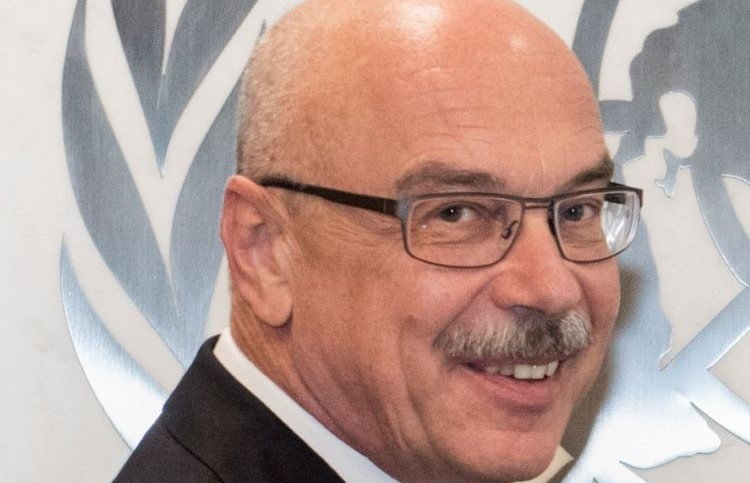The Diplomat
The PP yesterday accused the Minister of Foreign Affairs, José Manuel Albares, of “whitewashing” Vladimir Putin’s regime with his decision to meet in New York with the assistant secretary general of the United Nations Counter-Terrorism office, Russian diplomat Vladimir Voronkov. Foreign Affairs responded that Voronkov has “Russian nationality” but “does not represent Russia either at the UN or in any other way” and rejected, “without qualification, discrimination based on nationality, including Russian nationality.”
During a debate in the Congress of Deputies, the deputy of the Popular Party Pablo Hispán asked the Minister of Defense, Margarita Robles, if she thought it was “sensible that, while Putin announces a new step in the military escalation, Albares whitewashes the Russian regime”. He also described as “painful, regrettable and disloyal” the attitude of the Government in the war in Ukraine and again regretted the differences between the two partners of the Government, the PSOE and Unidas Podemos, with regard to NATO or the shipments of military material.
In response to the PP’s accusations, the Ministry of Foreign Affairs stated in a press release that “Minister Albares is not going to hold any meeting with any representative of the Russian Government during the ministerial week.” “Minister Albares will hold today (yesterday) a brief meeting with UN Deputy Secretary General Vladimir Voronkov, who is a Russian national but does not represent Russia either at the UN or in any other way, but rather the body in charge of the fight against terrorism within the UN structure,” it continued.
“The meeting is aimed at signing the headquarters agreement for the opening of a delegation of the UN Counter-Terrorism Office,” Foreign Affairs explained. “The Government, with this agreement, continues to strengthen Spain’s international profile by bringing a United Nations office to Madrid,” added the Ministry, which also recalled that “Assistant Secretary General Voronkov has been particularly active in supporting and defending the victims of terrorism” and is “one of the highest officials of the organization that embodies multilateralism and to the peaceful resolution of conflicts.”
“Spain has condemned from the outset the Russian aggression, supported all European sanctions packages and provided Ukraine with humanitarian aid and military materiel,” the Ministry stated. “The Government of Spain categorically rejects Russia’s illegal aggression against Ukraine and has publicly stated this unequivocally,” it continued. In addition, the Government “rejects, without qualification, discrimination based on nationality, including Russian nationality,” said the Foreign Ministry, which recalled that “UN officials are of all nationalities and do not represent their country.”
For her part, Margarita Robles assured during the debate in Congress that “Spain has demonstrated its commitment to Ukraine and that it is a serious, reliable and responsible country”, and asked the PP not to try to take “electoral advantage” of the conflict. The Foreign Ministry yesterday condemned “the announcement of referendums in the occupied territories of Lugansk, Kherson and Donetsk, which would constitute a new violation of legality”, and assured that “Spain will continue to support, together with our partners, the independence, sovereignty and territorial integrity of Ukraine”.
Vladimir Voronkov was appointed deputy secretary general of the United Nations Counter-Terrorism Office in June 2017 after more than 30 years of experience in the foreign service of the Russian Federation. Prior to his appointment, he served as Ambassador Permanent Representative of Russia to Vienna-based international organizations.
Last May, the Russian diplomat traveled to Malaga to participate in a conference on human rights, civil society and the fight against terrorism, organized by the Ministry of Foreign Affairs and the United Nations Office to Combat Terrorism (UNOCT). On that occasion, Voronkov and the Minister of the Interior, Fernando Grande Marlaska, held a bilateral meeting in which, among other issues, they discussed the opening of a regional UNOCT headquarters in Madrid, which was authorized last June by the Council of Ministers at the proposal of the Ministries of the Interior and Foreign Affairs and whose entry into operation is initially scheduled for this September. Grande Marlaska recently held another meeting with Voronkov at the UN headquarters in New York on the occasion of the United Nations World Congress on Victims of Terrorism.







